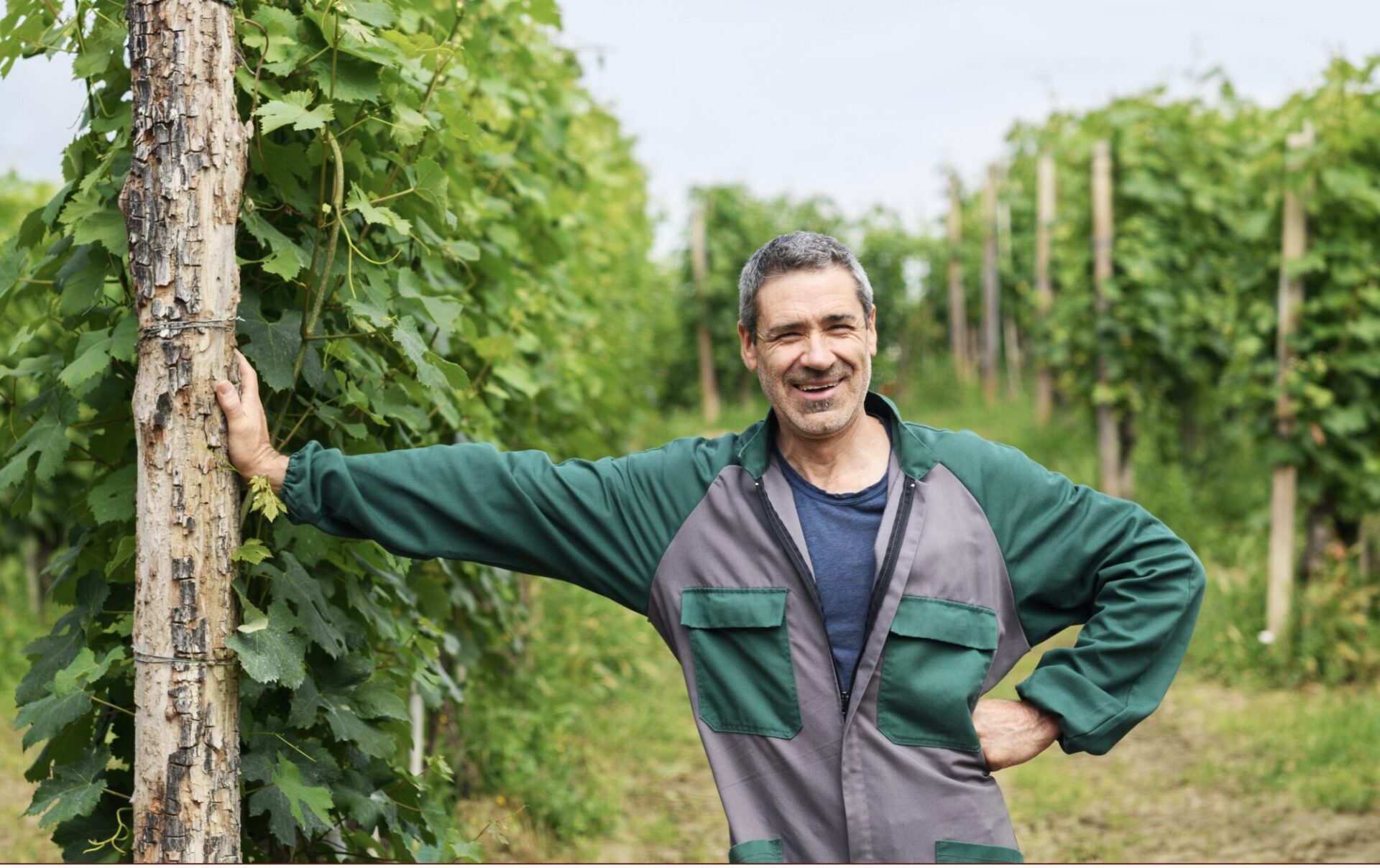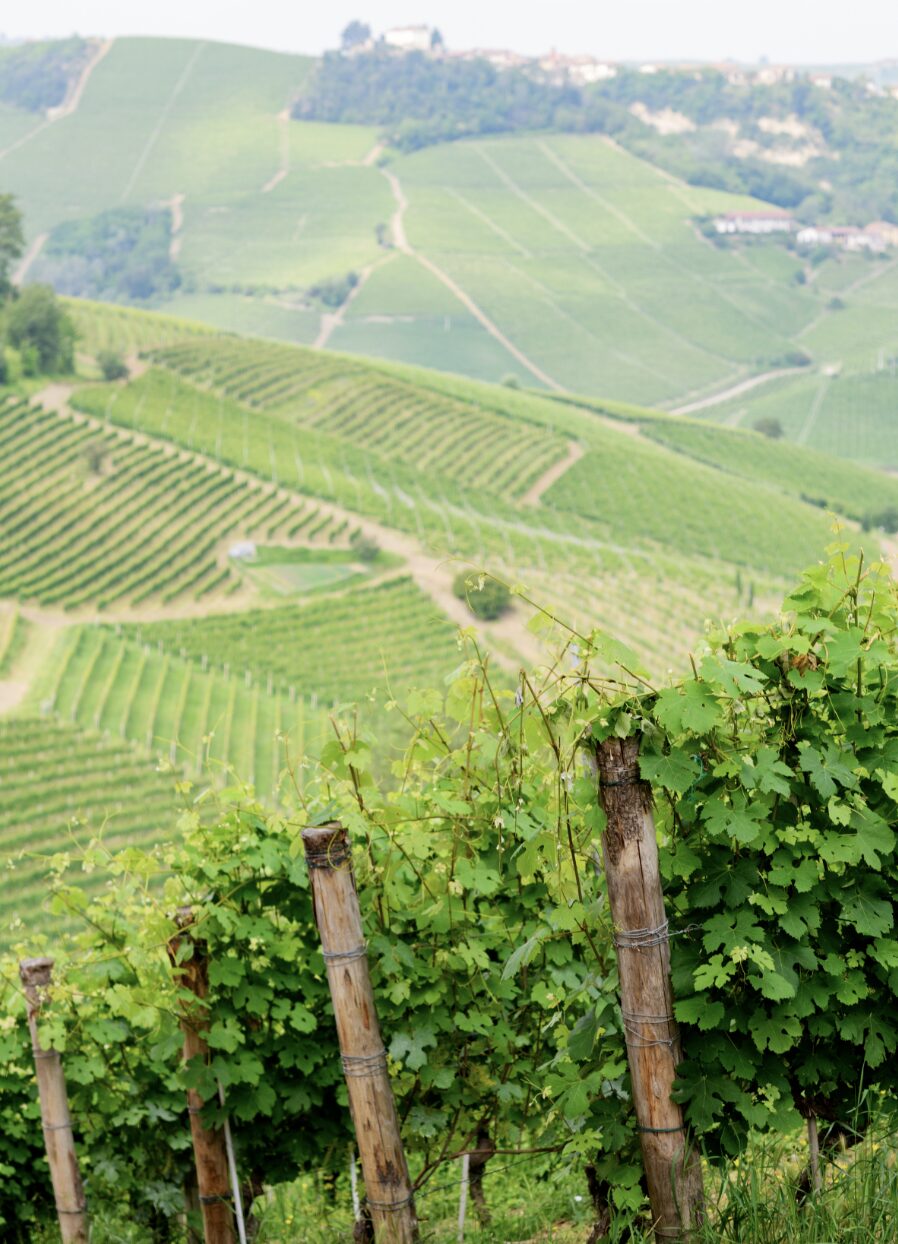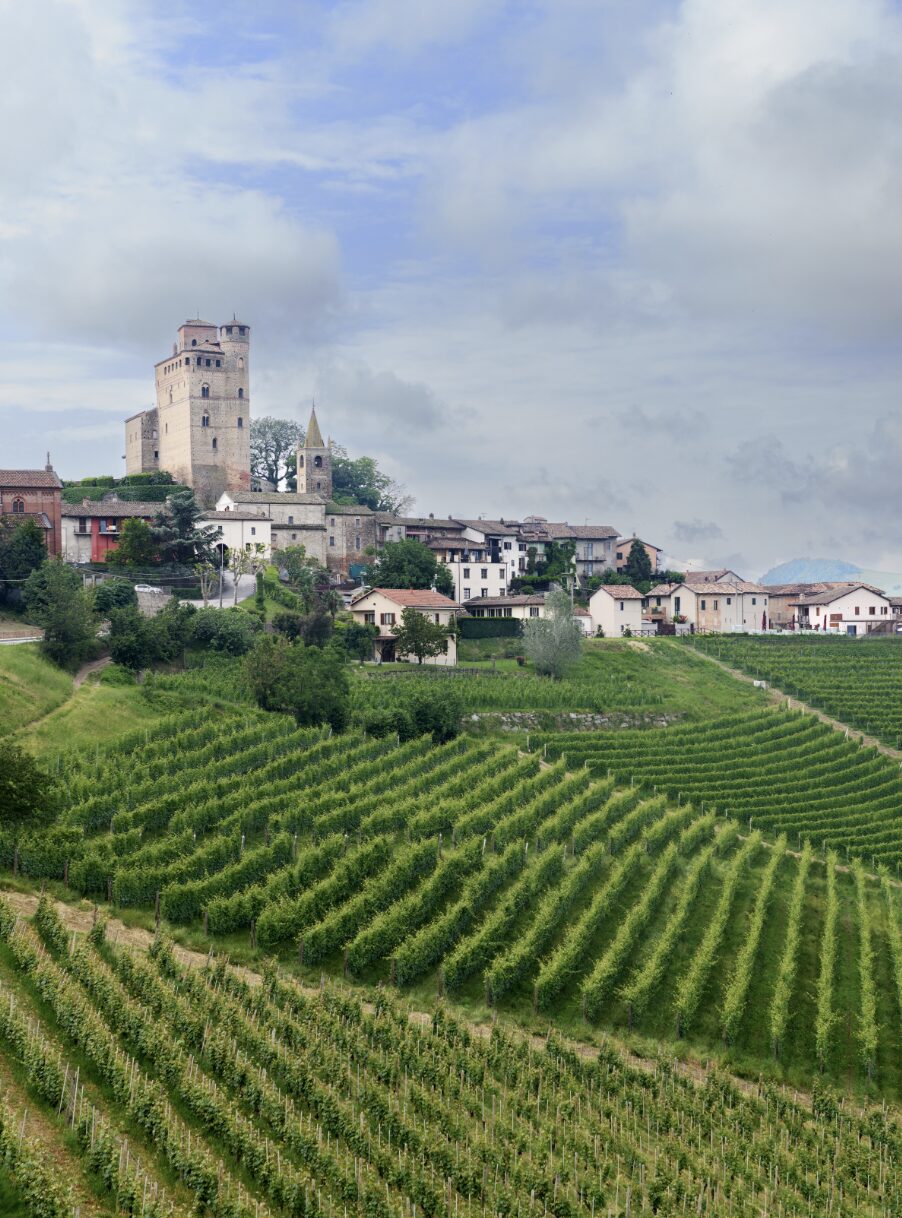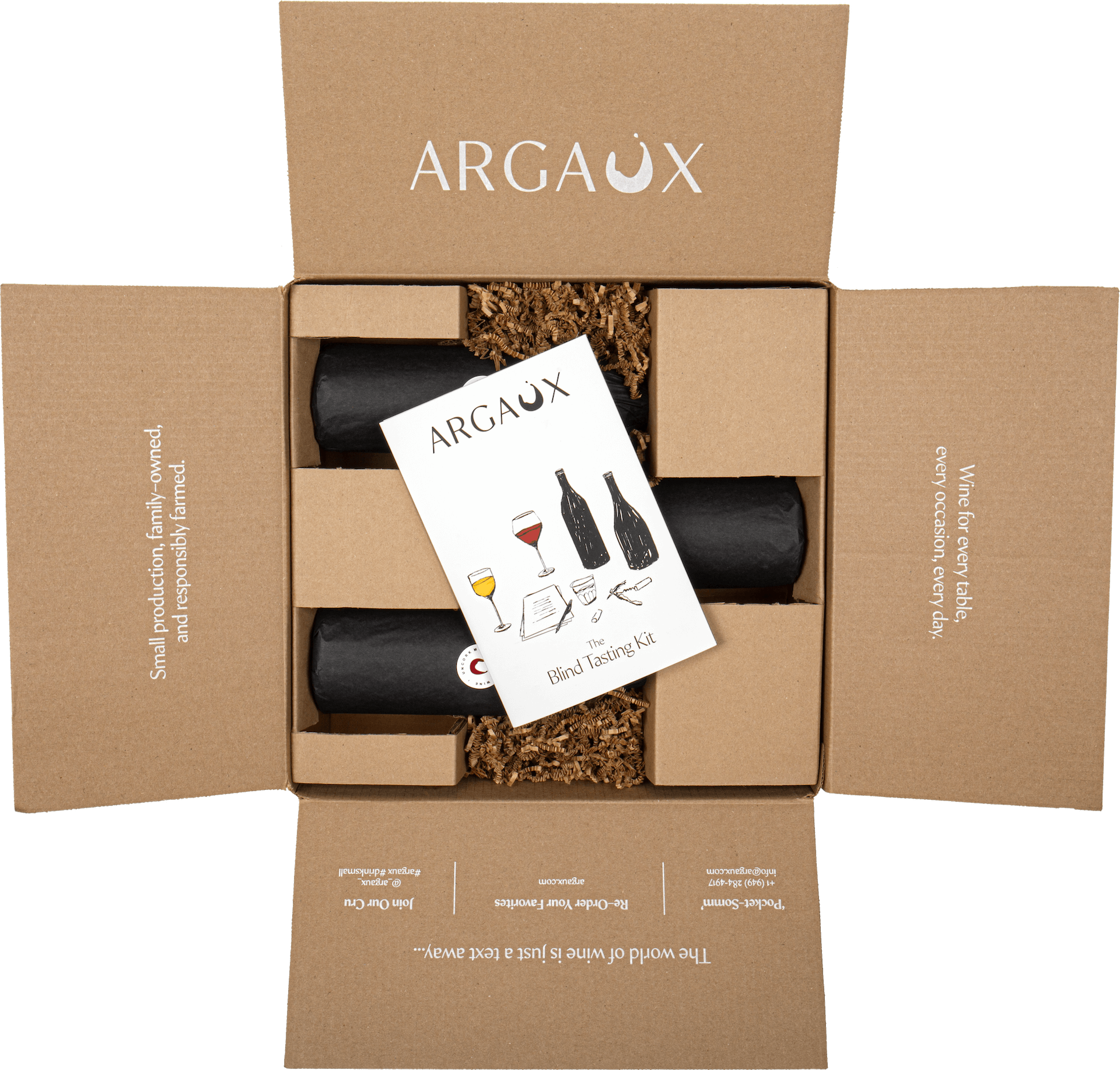2022 Guido Porro Barbera d’Alba “Vigna Santa Caterina”
The 40-year old vines for this Barbera sit in a privileged Barolo site, so there is no shortage of pedigree here. It’s a head-turning everyday pizza wine that makes you feel like you got a good deal. We love those wines. It’s also something you want to have on hand for a dinner party – and if you aren’t having pizza, enjoy it with chicken parmigiana.
Organic farming practices, hand-harvest, family-owned, native yeast fermentation, unfiltered and total production is only 3,750 cases annually (across 7 different wines).
- Tasting Notes bright blackberry, red cherry, currant, rose water, leather, mineral, clove, vanilla, velvety mouthfeel
- Variety Barbera
- Region Italy, Piedmont
- Volume 750ml
- Alcohol Volume 14.5%
- Table Talk If you like Barbera you my want to try Mourvedre next. DNA evidence suggests that Barbera is closely related to the Mourvedre grape of France and Spain. Look for a Spanish Monastrell or a French red from Bandol.
Guido Porro is a family-owned winery located in the heart of Piedmont, Italy, renowned for its dedication to traditional winemaking and the cultivation of native grape varieties. With vineyards nestled in the prestigious region of Serralunga d’Alba, the Porro family has been producing high-quality wines for generations. Their commitment to craftsmanship and respect for terroir shines through in every bottle. Reviews and notes on Guido Porro regularly refer to him as “under the radar”: the wines he makes are worthy of a stellar reputation, but he is too easygoing and unassuming to worry about whether the general wine-drinking public recognizes his name.
Sustainable Practices: Guido Porro embraces sustainable viticulture, aiming to preserve the environment and ensure the longevity of their vineyards. They employ organic farming methods, avoiding synthetic pesticides and herbicides, and focus on maintaining biodiversity in the vineyard. Their sustainable practices include minimal intervention in the winemaking process, allowing the natural characteristics of the grapes to take center stage.
Related Items
-
2022 Robert Biale “Black Chicken” Zinfandel Napa Valley (half-bottle)
$32.00Showing the influence of the breezy and fog-laced Oak Knoll District, this wine offers plush fruit with delicate acidity, and a structure defined by well-ripened, fine-grained tannins. Layered notes of blackberry preserves, stewed cherries, ripe plums, raspberries, violet, cocoa, and spiced wood. Persistent and full on the palate, this is an expressive Zinfandel that is drinking beautifully now, but will continue to improve for the next 5-7 years.
Certified sustainable farming practices. Family-owned winery. Dry-farmed vines and hand-harvested.
-
2002 Emidio Pepe Montepulciano d’Abruzzo
$300.00Extremely limited availability! Emidio Pepe has a cult following for his non-conventional winemaking techniques that have made the estate and their wines legendary. Better yet – we’ve aged the wine for you. Experts say this wine will peak from 2018-2030, aka now!
Organic farming practices, hand-harvested, native yeast fermentation, no fining/filtering, and no added sulfites.
-
Select options This product has multiple variants. The options may be chosen on the product page$85.00 – $150.00Price range: $85.00 through $150.00
“Bring the experience of a blind wine tasting into your very own home with Argaux’s blind tasting kit. Experience new wines and follow along with their how-to guide so you can get the full blind tasting experience.
Try this out for your next at-home date night, or virtually gather with friends on video conference and enjoy a virtual tasting! Argaux even provides an option so you can send kits to multiple addresses, making it a piece of cake to enjoy with friends around the world.” – Sarah Boyd, Forbes
-
2023 Fattoria Corzano e Paterno ‘Terre di Corzano’ Chianti DOCG
$30.00When it comes to Italian reds for summer, we want something smooth, easy-drinking, moderate in alcohol and not overly grippy—and this wine delivers. It’s bright and savory with just the right amount of structure to stand up to pasta al ragù or grilled lamb, yet refined enough to sip on its own.
Organic farming practices, hand-harvested, native yeast fermentation and less than 2,666 cases produced annually.












